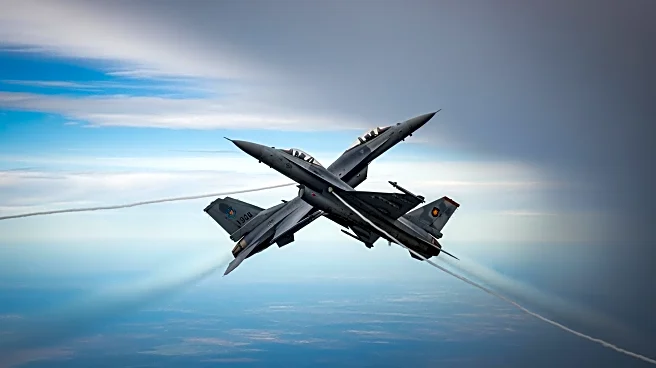What's Happening?
The Air Force has decided to cancel plans for a new command aimed at modernizing its capabilities to compete with China in future conflicts. This decision marks a reversal of a key initiative by former
Air Force Secretary Frank Kendall. The proposed Integrated Capabilities Command was intended to be led by a three-star general and focus on modernizing and prioritizing the service's future acquisitions. The command was initially established in a provisional capacity last year but was paused by Defense Secretary Pete Hegseth in February. Responsibilities of the provisional command will now be integrated into the Air Force Futures organization, which is set to be restructured by April 1, 2026. Air Force Secretary Troy Meink stated that this restructuring aims to accelerate combat power delivery, improve efficiency, and shorten decision timelines.
Why It's Important?
The cancellation of the Integrated Capabilities Command reflects a significant shift in the Air Force's strategic approach to modernization and competition with China. This move could impact the service's ability to streamline acquisition processes and focus on future conflicts. By folding the command's responsibilities into the Air Force Futures organization, the Air Force aims to enhance efficiency and decision-making speed. However, this decision may also invite criticism from those who supported the original initiative, as it removes a dedicated focus on modernization from major commands like the Air Force Global Strike Command and Air Force Combat Command. The restructuring could affect the Air Force's readiness and strategic positioning in the face of global power competition.
What's Next?
The Air Force Futures organization plans to create a new role of 'Chief Modernization Officer,' focusing on strategy, force design, mission integration, capability development, and platform modernization. Maj. Gen. Christopher Niemi, commander of the Air Force Warfare Center, will lead the reorganization efforts. The Air Force will continue to evaluate its strategic priorities and make decisions regarding its reorganization plans related to China. Air Force Secretary Meink has expressed skepticism about the competition-focused approach, emphasizing the administration's priorities for supporting homeland defense.
Beyond the Headlines
The decision to cancel the command may have deeper implications for the Air Force's internal dynamics and its approach to modernization. The move could signal a shift away from aggressive competition strategies towards a more balanced focus on homeland defense. This change might also reflect broader defense policy adjustments under current leadership, potentially influencing future budget allocations and strategic priorities.










